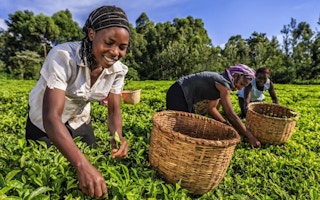The globally famous black tea of Kenya is under threat from climate change, according to a recent report.
The report, prepared by charity, Christian Aid, cited a peer-reviewed study to put forward the claim. The study has predicted that optimal conditions for growing tea in Kenya will be reduced by a quarter (26.2 per cent) by 2050.
Kenya’s most optimal tea-growing areas such as Mt Elgon and Mbeere are totally absent from the climate projections for 2050, according to the study. It also predicts that tea production in Kenya’s average tea-growing areas will fall by 39 per cent by 2050.
Kenya’s temperature will rise by 2.5 degrees Celsius between 2000 and 2050, according to the report. The country will be extreme rainfall events. The Rift Valley region will especially be affected.
Kenya’s yearly and monthly rainfall and mean air temperatures are expected to increase moderately by 2025, according to a report by the Food and Agriculture Organization. This will continue till 2075.
The changes in climate will impact the very taste of tea, according to the Christian Aid report. Increasing rain will change the “subtle flavours of the tea leaf and potentially reduce its health benefits”, the report said.
The report recommends three steps to tackle climate change that is impacting tea cultivation in Kenya:
- Emissions will have to be cut
- Climate finance will have to be boosted to help farmers adapt to the changing climate
- Debt will have to be cancelled to help poorer countries better respond to the impacts of climate change
Other major tea-producing countries including India, Sri Lanka and China are also facing rising temperatures and extreme weather that could affect their tea production, the report said.
Kenya is the largest producer of black tea in the world while China produces the maximum green tea.
This story was published with permission from Down To Earth.










